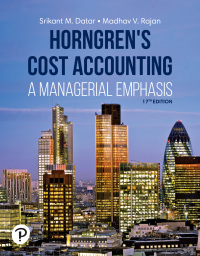Specifically, discuss ethical and strategic issues associated with the decision.
[The following information applies to the questions displayed below. ] orders from agricultural research groups. For each type of fertilizer sold, each bag is carefully filled to have the precise mix of components advertised for that type of fertilizer GGI's operating capacity is 35,000 one-hundred-pound bags per month, and it currently is selling 33,000 bags manufactured in 33 batches of1,000 bags each. The firm just received a request for a special order of 7,600 one-hundred-pound bags offertilizer for $200,000 from APAC, a research organization. The production costs would be the same, but there would be no variable selling costs. Delivery and other : 2 Green Grow Inc. (GGI) manufactures lawn fertilizer. Because of the product's very high quality. GGI often receives special , L20: packaging and distribution services would cause a one-time $4,800 cost for GGI. The special order would be processed in two batches of 3,800 bags each. (No incremental batch-level costs are anticipated. Most ofthe batch-level costs in this case are short-term fixed costs, such as salaries and depreciation.) The following information is provided about GGl's ) current operations: aints Sales and production cost data for 33,000 bags, per bag: Sales price $ 46 eBook Variable manufacturing costs 14 ___________________ Variable selling costs 3 rint Fixed manufacturing costs 26 Fixed marketing costs 6 References I No marketing costs would be associated with the special order. Because the order would be used in research and consistency is critical, APAC requires that GGI fill the entire order of 7,600 bags. 5. Suppose that after GGI accepts the special order, it finds that unexpected production delays will not allow it to supply all 7,600 units from its own plants and meet the promised deliveiy date. It can provide the same materials by purchasing them in bulk from a competing firm. The materials would then be packaged in 66] bags to complete the order. GGI knows the competitor's materials are very good quality, but it cannot be sure that the quality meets its own exacting standards. There is not enough time to carefully test the competitor's product to determine its quality. What should GGI do? Specifically, discuss ethical and strategic issues associated with the decision







